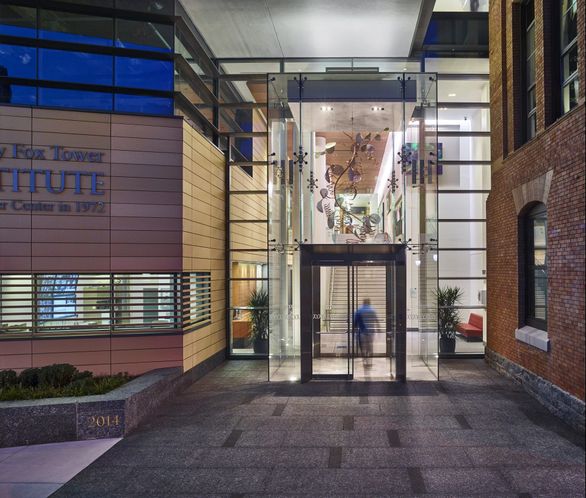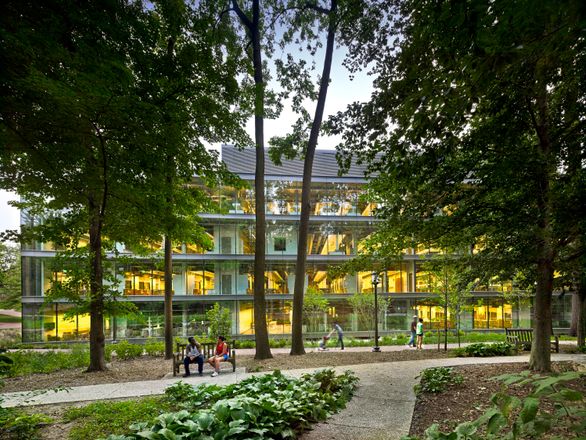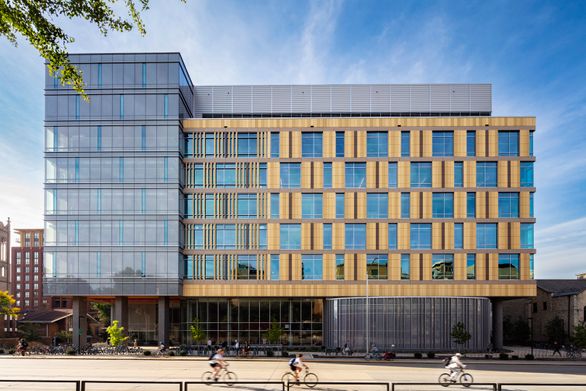University of Pennsylvania
Minimizing Disruption, Maximizing Impact

University of Pennsylvania
Stemmler Hall
Stemmler Hall has provided an inspiring space for biomedical research and teaching at the University of Pennsylvania (Penn) since it was built in 1978. At the age of 40, it was suffering from deferred maintenance: annual energy costs were high and systems required repair.
To advance its Climate and Sustainability Action Plan, Penn was considering a building systems-based retrofit of Stemmler Hall aimed at increasing energy efficiency and renewed building infrastructure. The retrofit was planned to span 44 months and six phases.
Ballinger proposed a more holistic solution: a comprehensive renovation that would completely transform the building, providing Class A laboratory space and replacing all building systems. The design team also devised a shorter, two-phase schedule that allowed for the building to remain in continuous operation during construction.
key information

The university elected to move forward with the two-phase gut renovation. The result is over 100,000 SF of new, state-of-the-art-research space with flexible infrastructure for future reconfiguration. The design increased lab workstation capacity by 50%, trading underutilized educational and administrative space for revenue-generating research space.
The LEED Gold renovation helps fulfill the mission of Penn’s Climate and Sustainability Action Plan. High-efficiency building systems reduce escalating energy costs. Adaptive reuse of the existing concrete structure and precast façade panels align with aspirations to reduce carbon footprint and minimize waste.

In addition to signaling environmental stewardship, the building reinvigorates a critical physical connection between academic, research and healthcare facilities. The design improves campus flow, introducing a monumental stair that strengthens the connection between clinical practice and medical research.
Serving a wide variety of the School of Medicine’s needs, Stemmler Hall has become one of the most energy efficient research buildings on campus.
Building Design + Construction
BD+C Reconstruction Award
Green Building United
Groundbreaker Award Finalist



